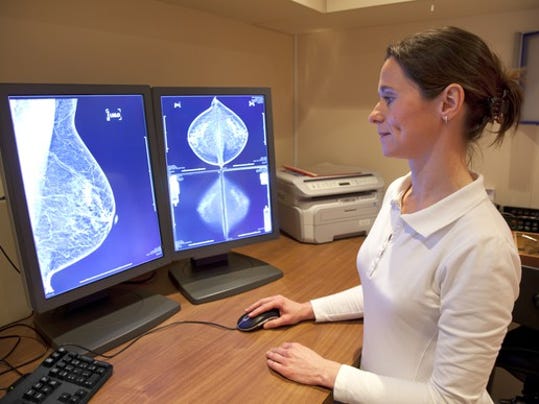Hormone Risks in Oral Contraceptives
 |
| Photo: Getty Images |
"In aggregate, over a woman's lifetime contraceptive use might prevent more cancers [than it causes]."
"There is good data to show that five or more years of oral contraceptive use substantially reduces ovarian cancer and endometrial cancer risk, and may reduce colorectal cancer."
"And the protection persists for ten or twenty years after cessation."
David J. Hunter, professor of epidemiology and medicine, University of Oxford, Britain
"[While results of the new study on breast cancer are important], these results are not a cause for alarm."
"It's really problematic to look at one outcome in isolation. Hormonal contraception has a complex matrix of benefits and risks, and you need to look at the overall pattern."
"We should be talking about vasectomy more. It should be seriously considered in many relationships."
Dr. JoAnn E. Manson, professor of women's health, Harvard Medical School
"We now have proof that you can lower your risk at any age by modifying these factors [when the use of oral contraceptives has outlived their usefulness in reflection of the user's age and need, to turn to alternatives]."
Dr. Marisa Weiss, oncologist, founder of breastcancer.org
"[The study results suggested a] rapid disappearance of excess risk of breast cancer after discontinuation of use among women who have used hormonal contraceptives for short periods."
"The number of cases increases with age because the risk of breast cancer increased with age."
"The risk does decline over time since ceasing their use."
Researchers, University of Copenhagen
 |
| CNN |
Since the risk of breast cancer increases with age it does so in lock-step with the risk of complications linked to oral contraceptives; for example, blood clots in the leg and the lungs. Gynecologists are mostly in agreement that women under ages 35 to 40 need not be concerned over the conclusions of a new study out of Denmark recently published in The New England Journal of Medicine.
According to Dr. Marisa Weiss of breastcancer.org, if oral contraceptives were being used other than for birth control; to solve the problem of irregular menstruation instead, her advice is to take a break from oral contraceptives. It is possible the condition may have improved over time with use of the pills; alternately, another management option may be identified to replace the pills.
The concerns have been raised after the Danish study linked an increased risk of breast cancer developing with the use of birth control pills. Despite which, many in the medical profession caution there is no reason to feel alarmed, and nor should pills be discarded. Weighing the risk of an unwanted pregnancy against the one-in-seven-thousand risk of breast cancer calls for a weighty discussion revolving around age, general health and other risks for breast cancer.
For the vast majority of women in their 20s and 30s, breast cancer is a rare event in any event. Birth control pill use may slightly raise the odds of breast cancer (they have also been associated with increases in cervical cancer); the relationship between cancer and the contraceptive use is complex. At the same time, oral contraceptives seem to reduce the incidence of less common reproductive cancers, such as endometrial and ovarian cancers, often detected when they have advanced to a stage where they are difficult to treat. Some evidence also exists that birth control pills may reduce the odds of colorectal cancer, as well.
During the earliest days of the pill use in the 1960s, a British study of over 46,000 women were followed up to 44 years to find that despite increases in breast and cervical cancers among women using the pill, the overall cancer rate effect was actually neutralized, taking into account the reduction of risk of other cancers. And it is not the only study which has reached a like conclusion.
Previous research had linked birth control pills to a slight breast cancer risk even decades ago. The surprising element in this more recent study and its conclusions is associated with the fact that the risk has persisted even though new pills use lower doses of estrogen and that the increased risk was experienced as well by women who use implanted intrauterine devices which are geared to release a hormone directly into the uterus.
It is recommended that women using an IUD identify whether it releases the hormone progestin which the Danish study has implicated in increased breast cancer risk, or whether a nonhormonal IUD such as the copper version is being used. It's just as well to be aware that bearing children before age 30, breast-feeding at any age for any length of time, minimizing radiation exposure and eschewing hormone therapy after menopause can all help reduce breast cancer risk.
Add to that not smoking, losing weight, exercising daily and limiting red meat consumption and alcohol may also reduce risk, according to Dr. Weiss.
Labels: Biology, Cancer, Healthy, Hormonal therapy, Research, Risk

0 Comments:
Post a Comment
<< Home